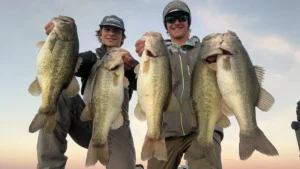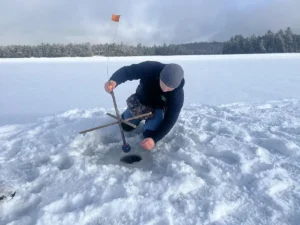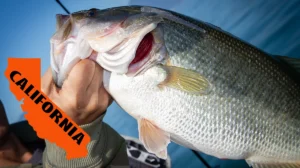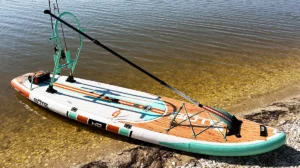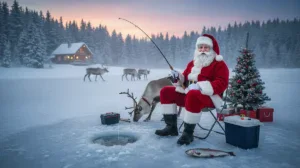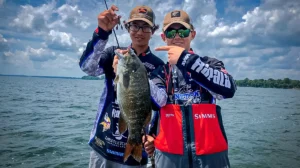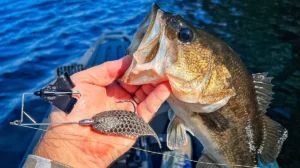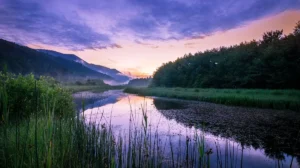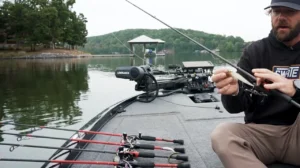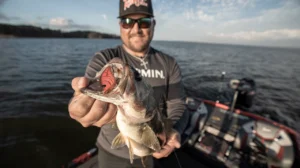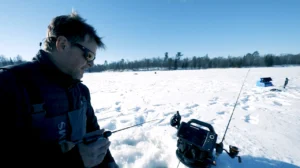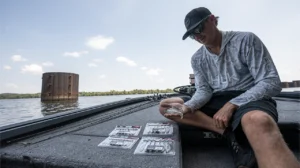Fishing Destination: Milford Lake, Kansas
For all of you out-of-state anglers who look at Kansas as drive-through or fly-over country, you’d better check out Milford Lake. Then, you’ll change your mind. Covering almost 16,000 acres in the northeast part of the state, Milford is the largest reservoir in Kansas. It’s also arguably the best fishery in the state. Dubbed the “Fishing Capital of Kansas,” it lives up to its name. Put simply, these are the good old days for this 57-year-old reservoir in the Kansas Flint Hills.
Locals can’t recall a time when the overall fishing at Milford has been this good. Big smallmouth bass, an impressive population of good-sized wipers (a cross between white bass and stripers), giant blue catfish, slab crappie, school of white bass — they’re all putting Milford on the national map.
“A lot of people passing through Kansas don’t realize there is a fantastic fishing lake just 10 miles off the interstate (I-70),” said Rick Dykstra, an avid fisherman and longtime tourism official. “In the past, it flew under the radar. But I think many more people are discovering how good this lake is for fishing.”
Indeed, it’s hard to keep a secret like Milford.
So, why is it so good? It starts with the food source. Milford has a huge population of gizzard shad, and an abundance of crawdads, too. The reservoir also has good clarity, a mix of depths, lots of structure in the form of humps, rocky banks, drop-offs, and points, and plenty of manmade cover. Add it up, and that’s a recipe for success. That’s not just chamber of commerce talk. I’ve fished Milford long enough to realize that it’s a special place.
Milford Lake Stats
- Location: Near Junction City in northeast Kansas, about 85 miles west of Topeka
- Size: 15,700 acres
- Features: The Republican River was dammed to create the reservoir. Milford’s watershed covers 1,252,480 acres in seven counties
- Management: Milford is a U.S. Army Corps of Engineers reservoir with flood-control and drinking water as its main priorities
- Gamefish Fame: Known for its diversity of species. Smallmouth bass, wipers and blue catfish are the headline species that command the most attention, but Milford also has good fishing for crappie, white bass and largemouth bass
- Forage: Abundant gizzard shad, crayfish and panfish
- Age: The water level reached its multipurpose pool on July 13, 1967. It was officially dedicated in May of 1968
A Reliable Source

Few Kansans know as much about Milford Lake as Brad Roether. Today, he runs the largest guide service on the lake, owns Grandpa Boone’s Cabin lodging, and serves as the mayor of the town of Milford. But that’s only part of his story. Both sides of his family were born and raised in the town, his dad ran one of the only bait shops in the area, and he played on some of the land that is now under water.
“We don’t need a fish finder to locate some of the rock foundations from those barns and houses,” Roether said. “We’re catching fish off some of those spots. The lake has changed a lot over the years. But those farmsteads, road beds and hills that were part of the original town before the lake was built are still there.”
The town was moved to higher ground when construction of Milford Lake began in the 1960s. Now, the Roethers and others tell wild stories of catching fish in the former town that is now under water. I remember one fisherman telling me that he caught a big smallmouth bass bouncing a jig and plastic trailer down the steps of one of the sunken foundations.
But that’s just a small part of the structure that holds fish at Milford. Rimmed by rocky banks and riprap, it has the look of a classic smallmouth bass reservoir. And the main lake has expanses of open water crisscrossed with river and creek channels for pelagic species such as wipers and white bass.
Fishing tip: For overall fishing, plan a trip in June. “You can catch every species in the lake in June,” Roether said. They’re coming off the spawn, and they’re hungry.”
A Top Smallmouth Bass Destination
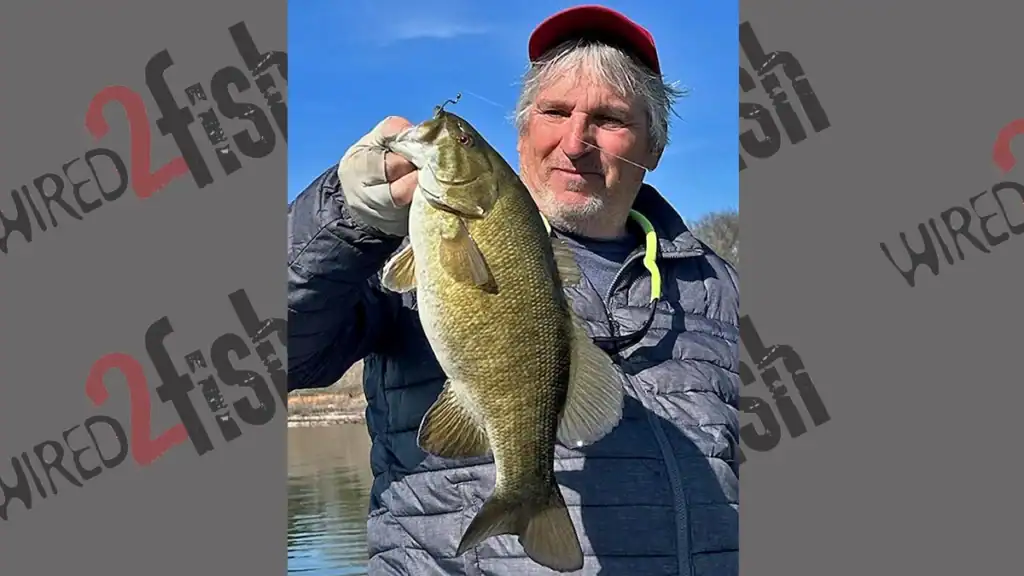
Dykstra has never seen Milford’s smallmouth bass population so impressive. Not only does the reservoir have great numbers of fish, it has the big fish anglers like to target.
“In a bass tournament, it takes five fish weighing at least 15 to 17 pounds to win,” Dykstra said. “That’s all smallmouth bass. And that’s phenomenal.”
Dykstra is one of those tournament anglers who has excelled. He starts the year by using suspending jerkbaits to lure the sluggish fish. By late spring and early summer, he drops down to spinning gear and small plastic baits. The key, he said, is going as light as possible.
“I’ll drop down to a ⅛- or even a 1/16-ounce jighead with a crawdad imitation and just retrieve it as slowly as possible through those rocks,” he said. “You want to keep your bait down to where they live without constantly getting hung up.”
Fishing tip: Dykstra’s favorite month to catch the big ones? October, when the big ones go on a feeding binge in anticipation of winter. He likes to throw big Chatterbaits to the shallows where the smallies are feeding on shad.
Topwater Paradise
Picture this. It’s late evening and the lake is calm and serene as the sunset casts an orange hue on the water. Then without warning, a huge school of wipers rises and tears into shad, sending panicked baitfish flying everywhere. A dream scenario? No, that’s a common occurrence at Milford, which is full of wipers.
In the golden hour—at dawn and dusk—schools of wipers will herd baitfsh into the shallows and provide some of the best topwater fishing imaginable. Fishermen like to idle on the main lake and use binoculars to scan and see where the wipers are surfacing. Then they race over and cut their engine before spooking the fish, and use their trolling motor to get within casting distance. Roether likes to cast big Chug Bugs or Whopper Ploppers into the surfacing activity.
Tyler Clements, of Livin Waters Guide Service, takes a different approach. He uses a 7-foot-long spinning rod and a 4-inch paddletail swimbait on a 1/2-ounce jig head to launch long casts into the feeding frenzy.
“We catch a lot of 4- to 6-pound wipers along with some big white bass that way,” Clements said. “We’ll catch them on top from May into October.”
Even when the fish are not surfacing, there are ways to catch them. Once the water temperature rises in the summer and drives the baitfish and wipers deep, Roether will use his electronics to locate the fish and spot lock on his trolling motor to stay over them. He then has his customers use either fresh shad that Roether netted earlier or jigging spoons to fish vertically.
Fishing tip: Roether often instructs his guide clients to fan cast the spoons out a way from the boat and hop them back to the boat, keeping contact with the bottom. “With the pressure these wipers are getting, we have had better success with that technique than fishing straight under the boat,” he said.
Other Milford Lake Species
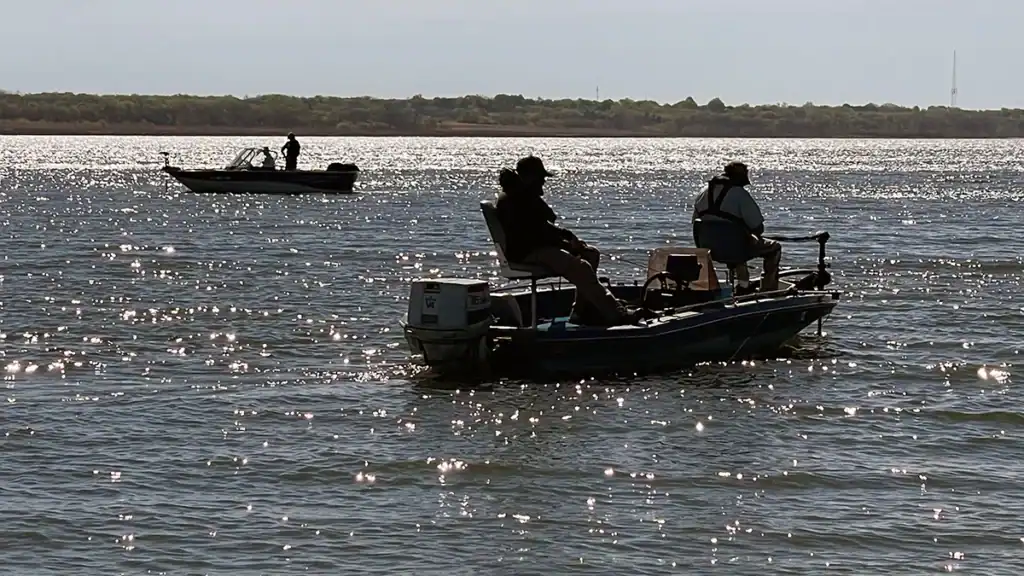
- Blue catfish: Plan a trip shortly after ice-out in March and head to a wind-blown bank at the north end of the lake. The blue catfish like to gorge on winter-killed shad that are swept into the shallows and can be caught surprisingly shallow.
- White bass: Fish with small paddletail swimbaits along jetties and riprap in the spring, and on jigging spoons over humps and off points in the summer.
- Crappie: Though the crappie population isn’t as strong as it was a couple years ago, good numbers of fish still exist. If you’re the hardy type, go out in winter and locate brush piles along the channels or other deep structure. “When they’re in the brush in the winter, they’re not moving around,” Clements said. “You can catch a lot of fish from one spot.”
Lake Resources: Do Your Homework
- Lake map: To get the lay of the land, go to the U.S. Army Corps of Engineers website.
- Boat ramps: Milford has 11 main public boat ramps. For locations, go to the Corps webpage.
- Lodging: My personal preference and a favorite for families is Acorns Resort. The waterfront resort features 25 cabins, 9 motel-style rooms, and an RV campground. It has a marina with boat rentals, a full-service bar and grill, swimming beach, an elk farm, and family activities. Grandpa Boone’s Cabin is another favorite for fishermen and hunters. Many other options exist in nearby Junction City.
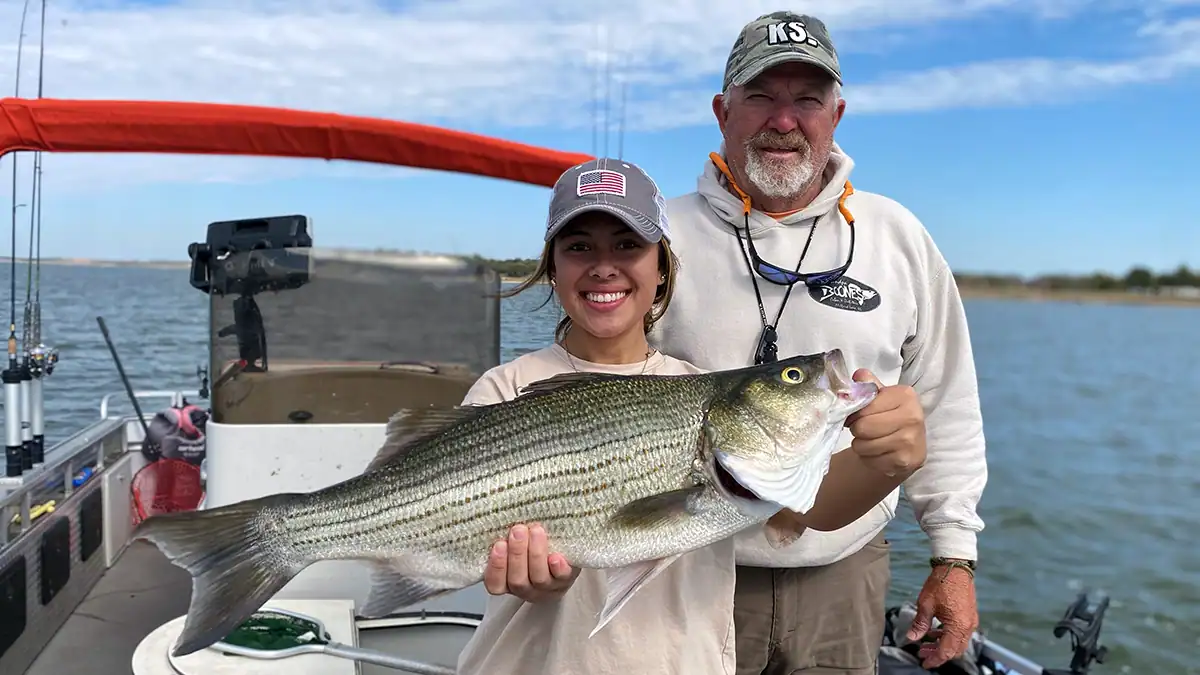

![[VIDEO] Swindle’s Fall Bass Bait Rotation for Shad Fisheries](https://www.wired2fish.com/wp-content/uploads/2024/11/fall-bait-rotation-300x169.webp)
